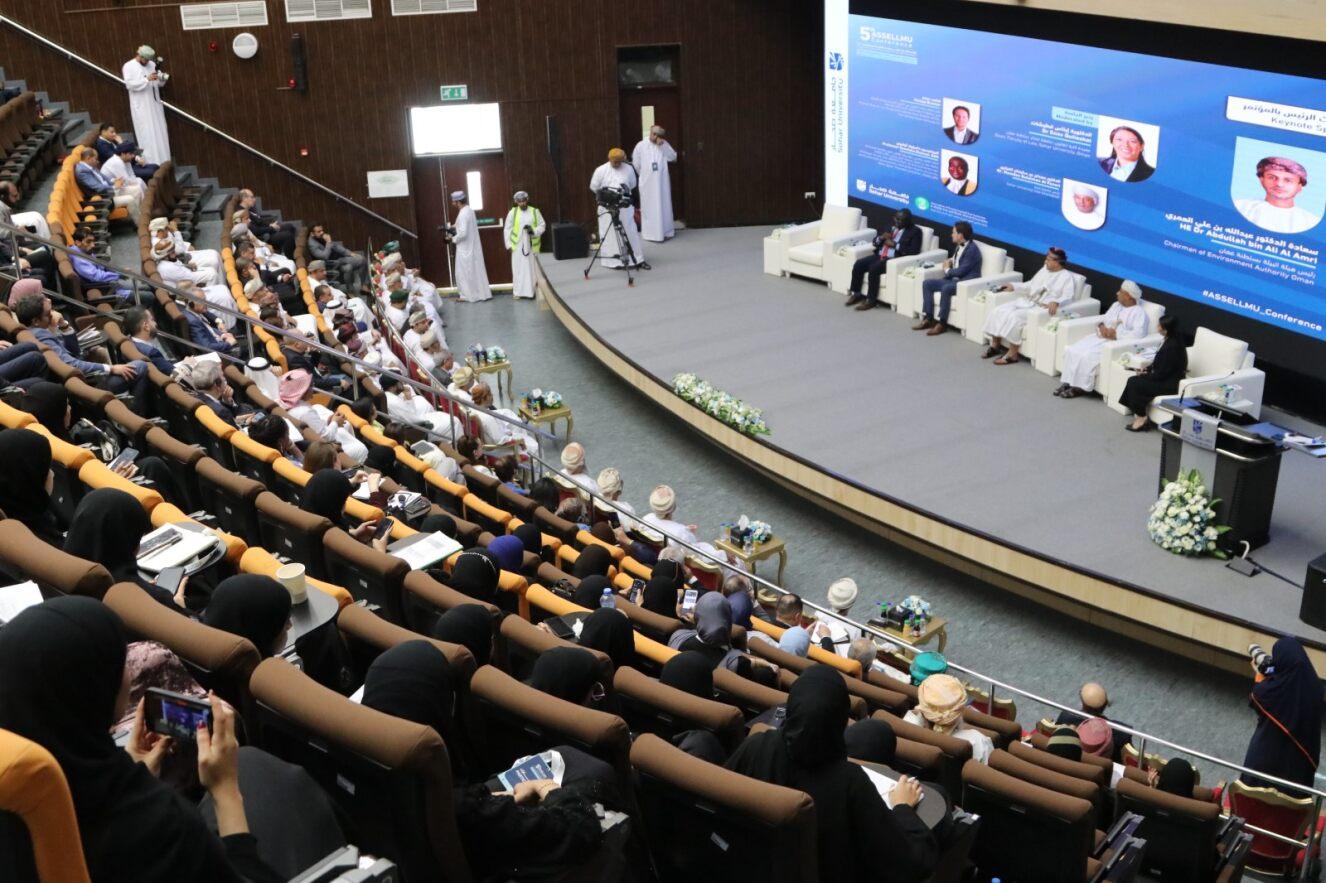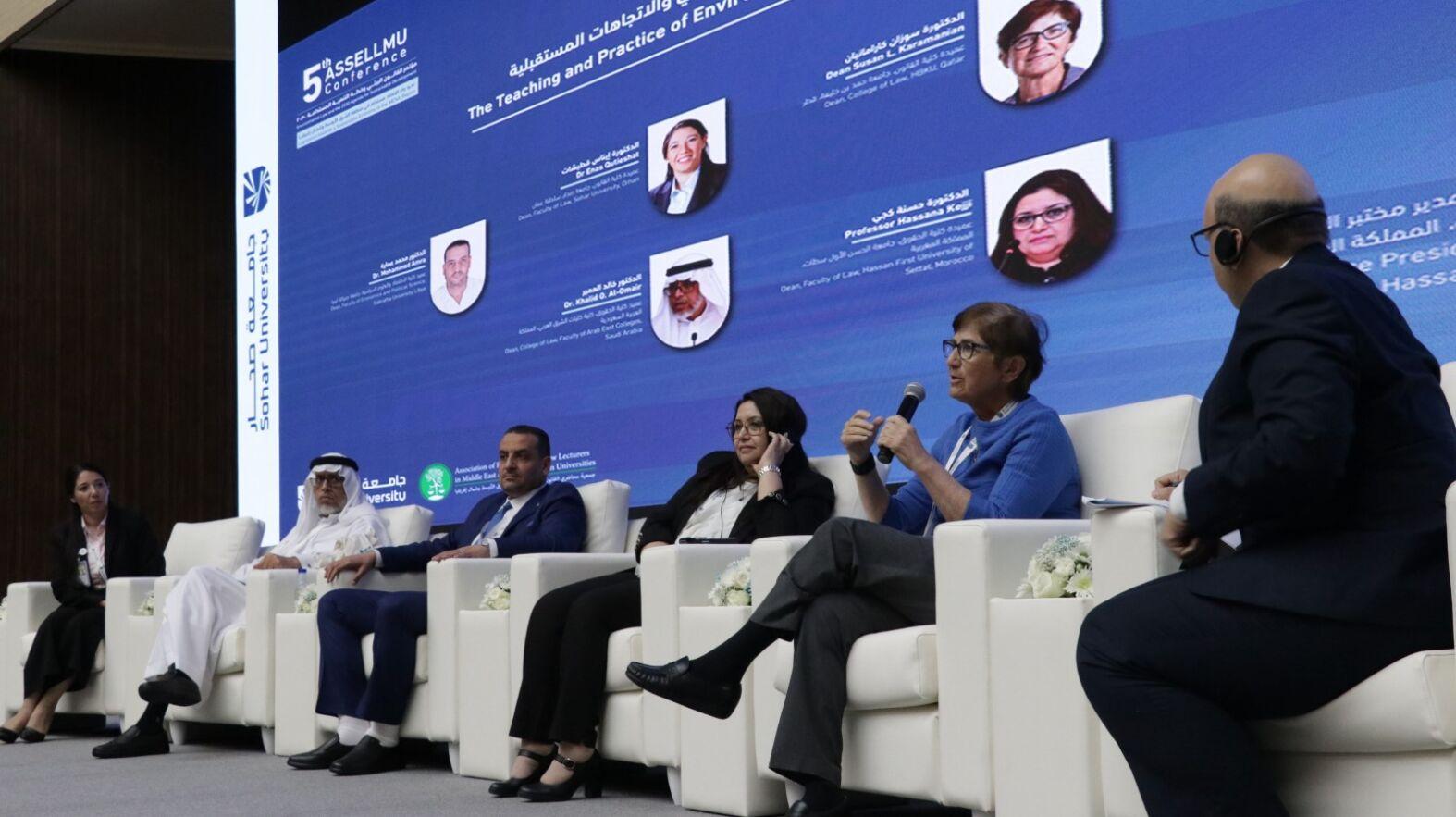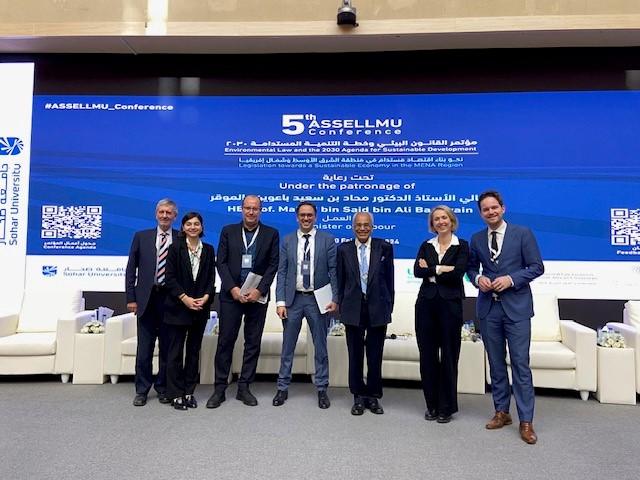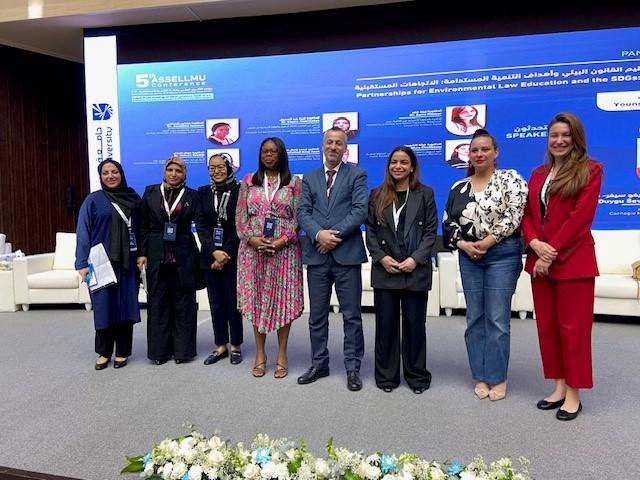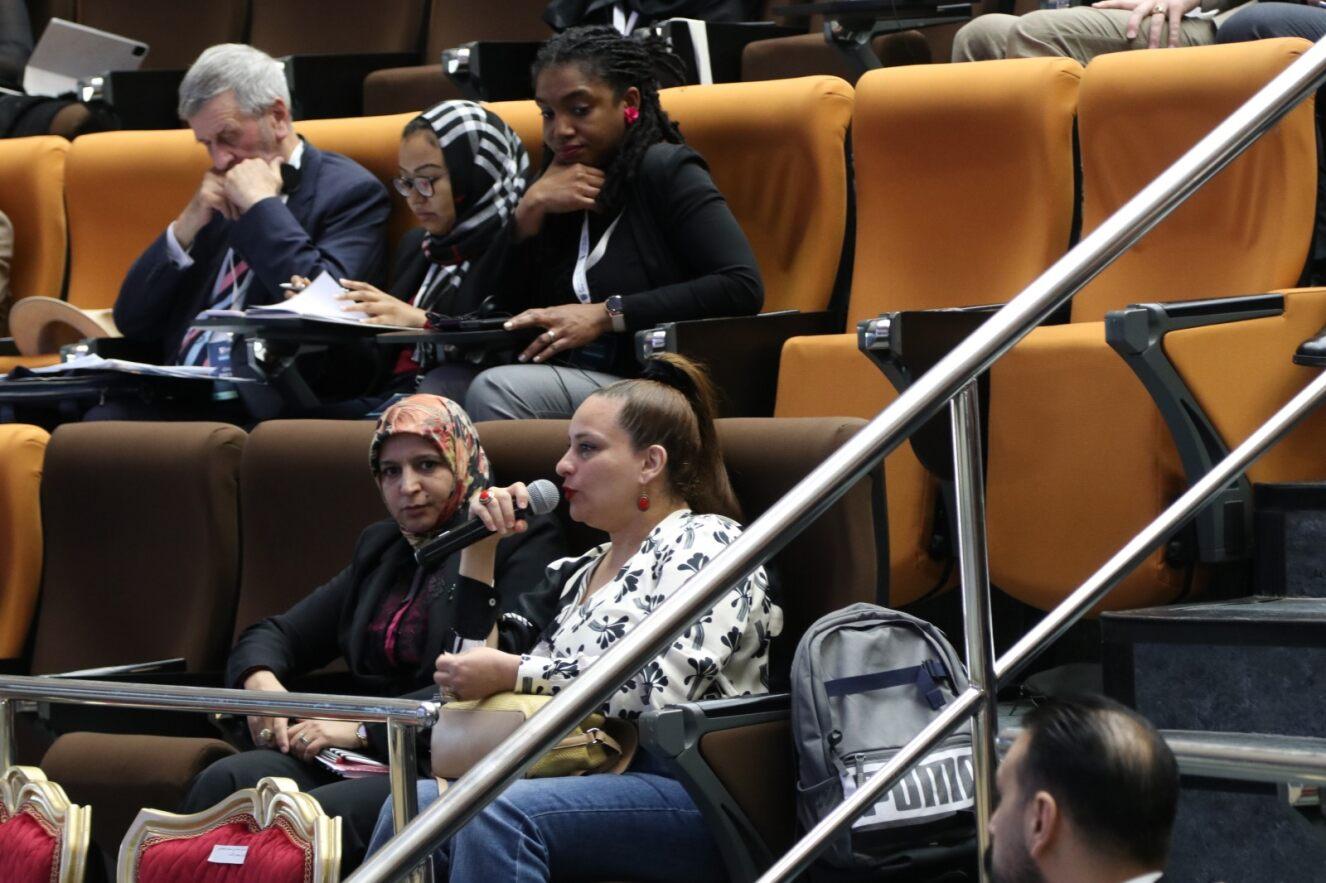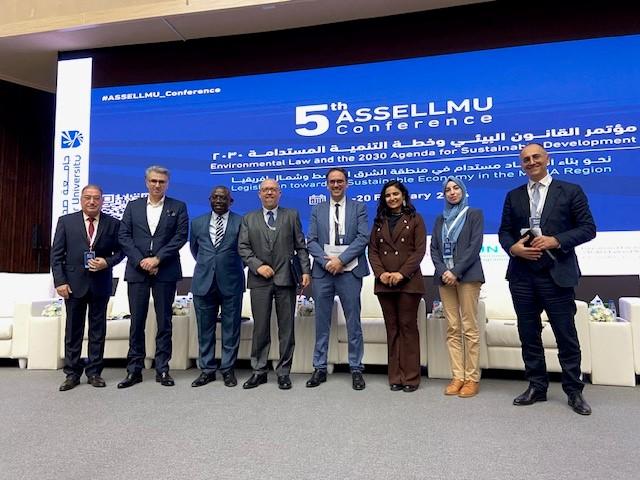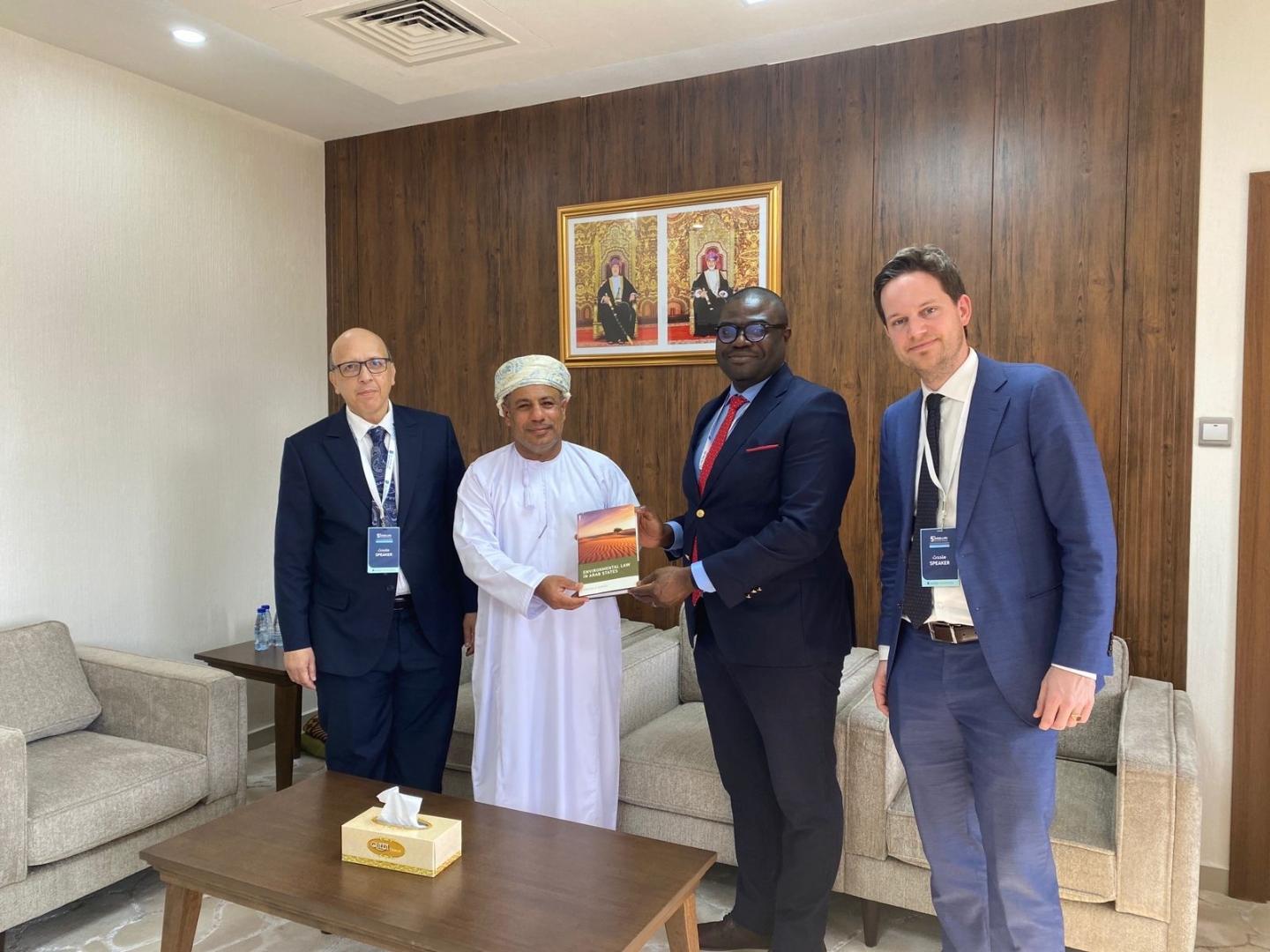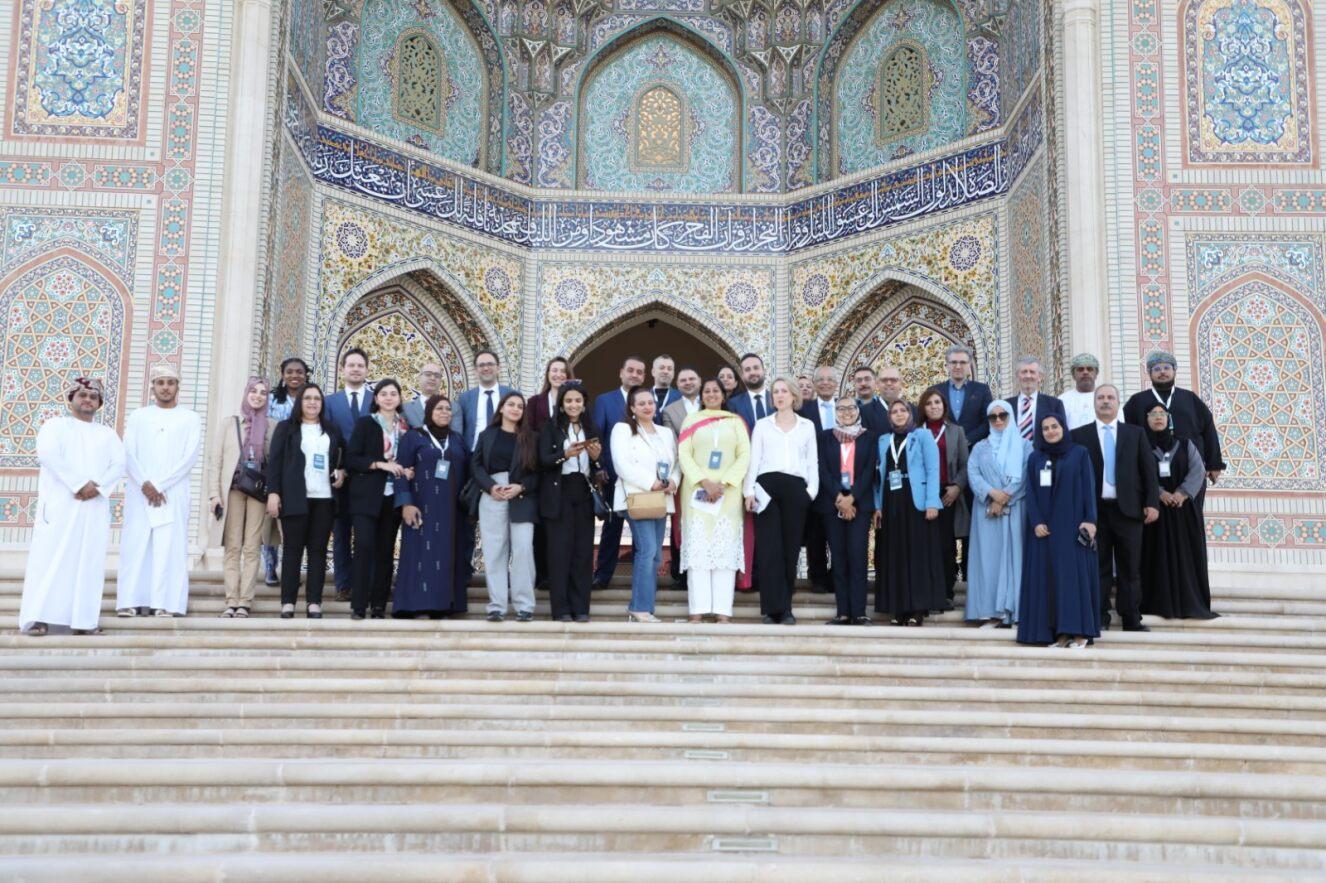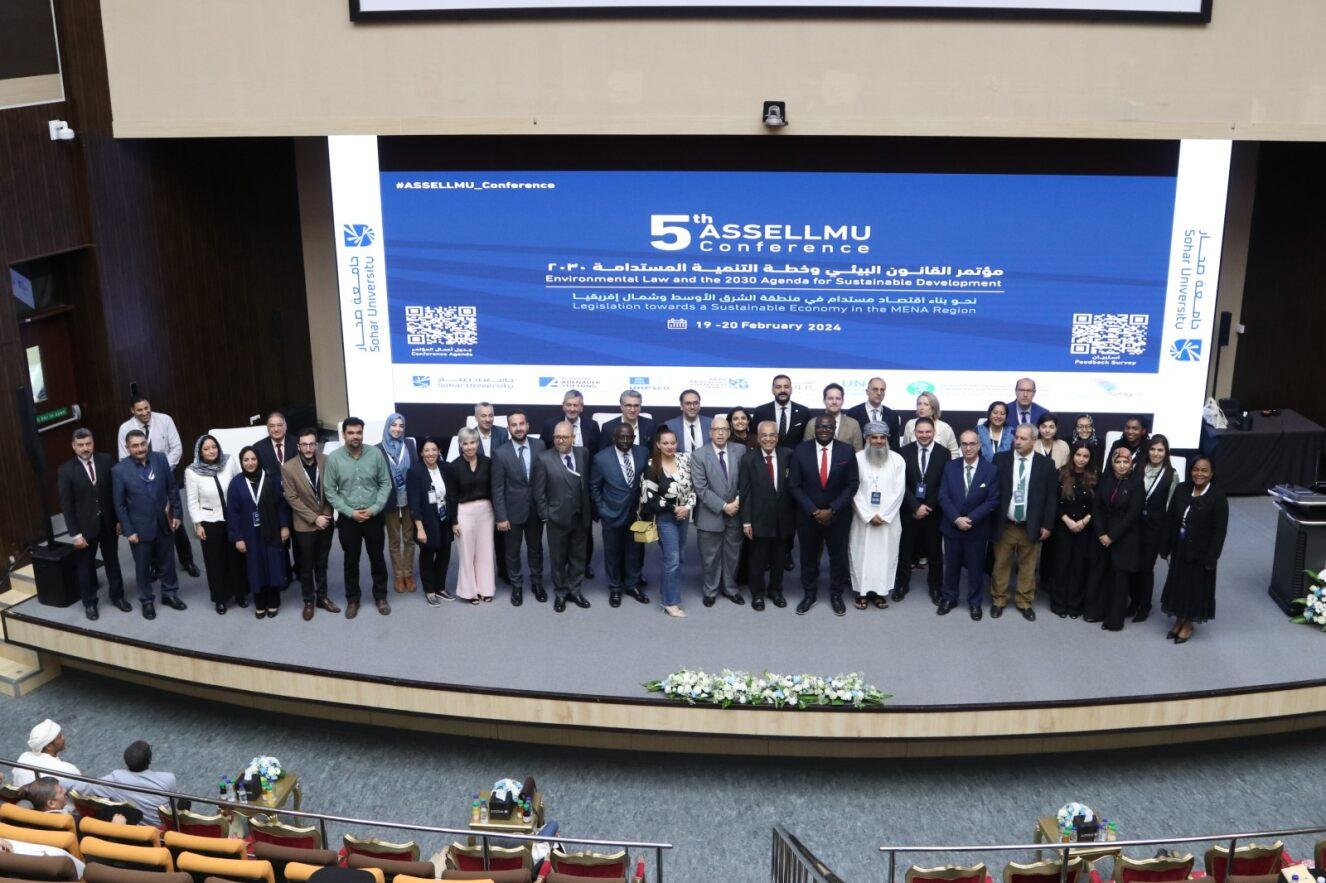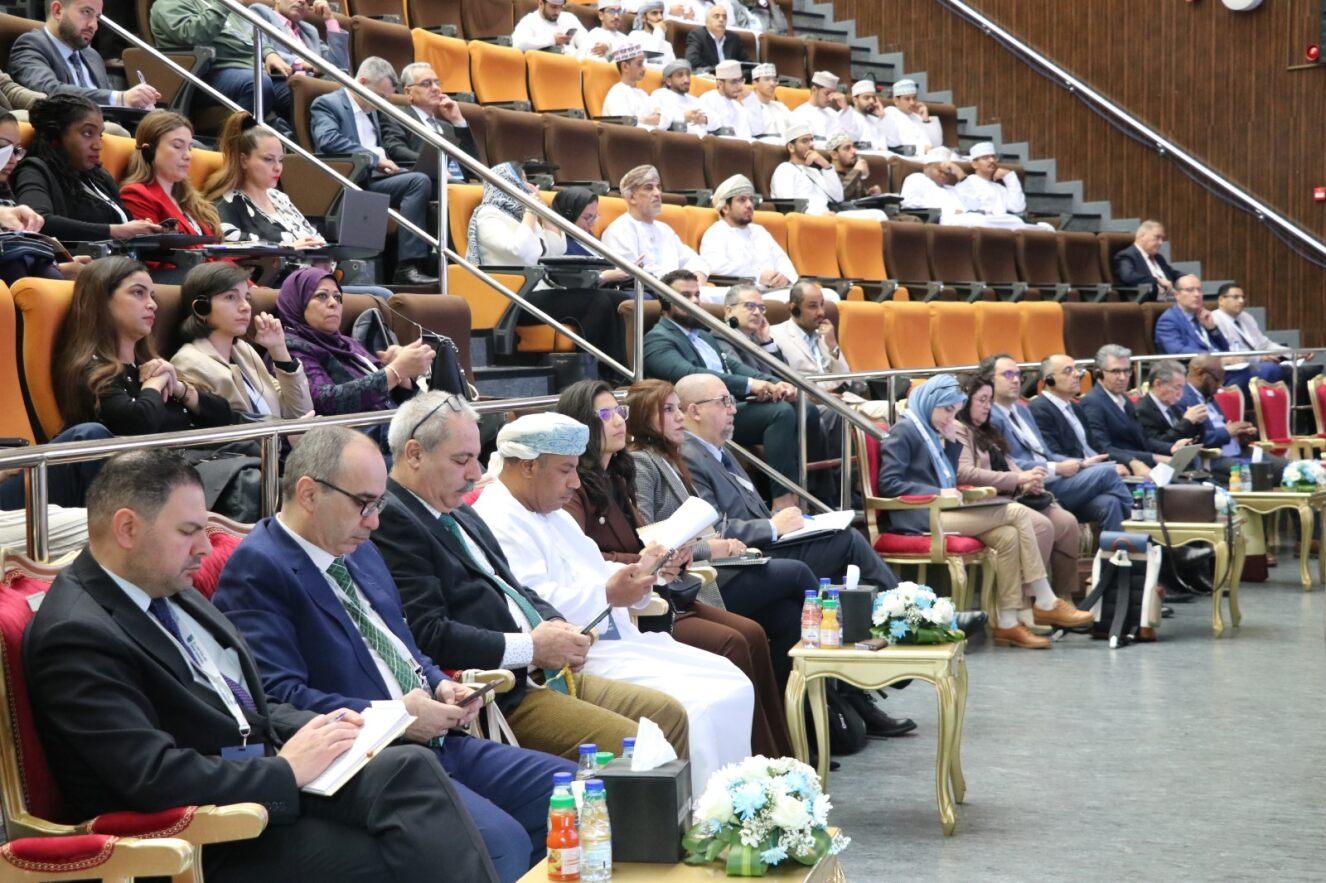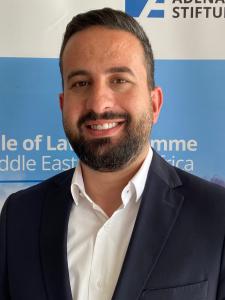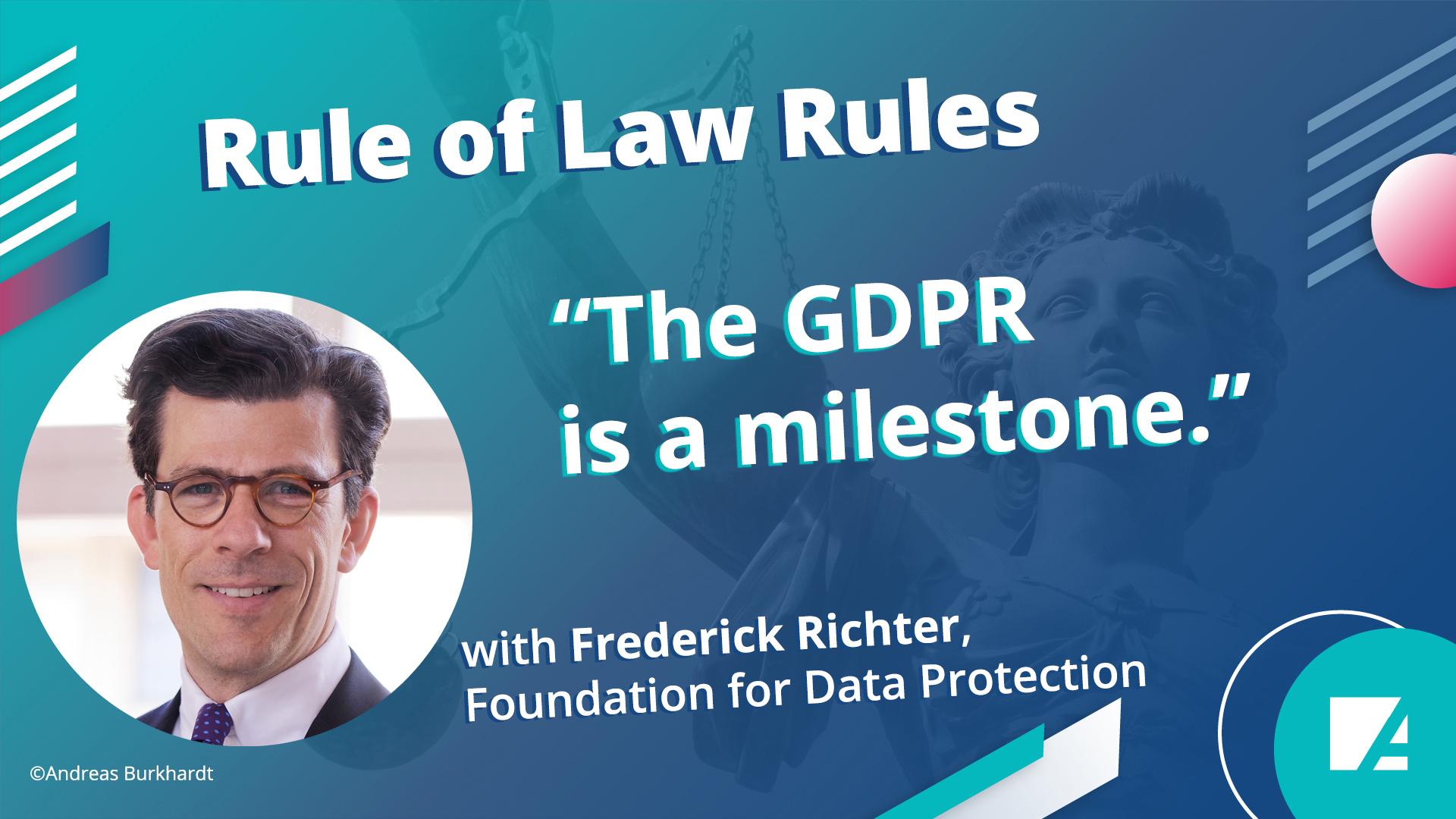The fifth annual conference of the Association of Environmental Law Lecturers in Middle East and North African Universities (ASSELLMU), titled "Environmental Law and the 2030 Agenda for Sustainable Development," took place from February 19th to 20th, 2024. Hosted by the College of Law at Sohar University, Sultanate of Oman, this conference gathered environmental educators, practitioners, and stakeholders to exchange knowledge and experiences aimed at advancing environmental law education and practice in the MENA region. The event was organized in collaboration between the Rule of Law Programme Middle East & North Africa office of the Konrad Adenauer Stiftung (KAS) and the following esteemed partners:
- Faculty of Law, Sohar University
- Association of Environmental Law Lecturers in Middle East and North African Universities (ASSELLMU)
- United Nations Environment Programme UNEP
- SADER for Legal Publishing
- UNESCO Chair on Environmental Law and Sustainable Development, Hamad bin Khalifa University, Doha, Qatar
Objective:
The overarching aim of the conference was to facilitate the exchange of knowledge and experiences in enhancing environmental law education and practice in the MENA region. It served as a platform for discussing essential resources, skills, approaches, and methodologies necessary to equip students and future environmental administrators with the legal and governance skills required to advance the Sustainable Development Goals (SDGs) within their spheres of operation.
Program Overview:
Day 1:
The opening session began with welcome remarks by Dr. Hamdan Sulaiman Al Fazari, Professor Patricia Mbote (Video), Mr. Philipp Bremer and Professor Damilola Olawuyi, followed by keynote speeches delivered by esteemed dignitaries, including Professor Patricia Mbote from the United Nations Environment Programme, HE Dr. Abdullah bin Ali Al Amri, Chairman of Environment Authority Oman and Professor Attiya Waris, United Nations Independent Expert on foreign debt, other international financial obligations and human rights.
Keynote speeches were followed by two panel discussions: the first focusing on "The Teaching and Practice of Environmental Law in the MENA Region: Current Status and Future Directions," chaired by Dr. Riyad Fahkri, and the second on “International Environmental Rule of Law and the SDGs” chaired by Mr. Philipp Bremer. These sessions provided valuable insights into the current landscape of environmental law education and practice, as well as the global efforts toward achieving the SDGs.
The day concluded with a tour of Sohar City and a welcome dinner on campus, fostering networking opportunities and further discussions among participants.
Day 2:
Day 2 commenced with opening remarks by Professor Riyad Fahkri, followed by two panel discussions: the first centered on “Integrated and multistakeholder approaches to the SDGs”, and the second on “Strengthening environmental legal education on biodiversity and nature conservation: future directions”. A keynote speech by H.E. Professor Leila Chikhaoui Mahdaoui, Minister of Environment of Tunisia, addressed “Pedagogical Methodologies for Environment and Sustainable Development Law Education”. The conference concluded with a panel discussion on "Partnerships for Environmental Law Education and the SDGs: Future Directions".
The event concluded with closing remarks and the presentation of conference certificates by Professor Damilola Olawuyi, SAN. An announcement was made regarding the 6th ASSELMU Conference which will take place next year on February 24-25, 2025 at the Faculty of Law, East Arab Colleges, Riyadh, Saudi Arabia.
Conclusion:
The "Environmental Law and the 2030 Agenda for Sustainable Development" conference successfully achieved its objective of fostering dialogue and collaboration among environmental educators, practitioners, and stakeholders in the MENA region. Through insightful discussions, presentations, and workshops, participants shared valuable knowledge and experiences, paving the way for enhanced environmental law education and practice to support the realization of the SDGs. The organizers extend their gratitude to all participants, sponsors, and partners for their contributions to the success of the event.



